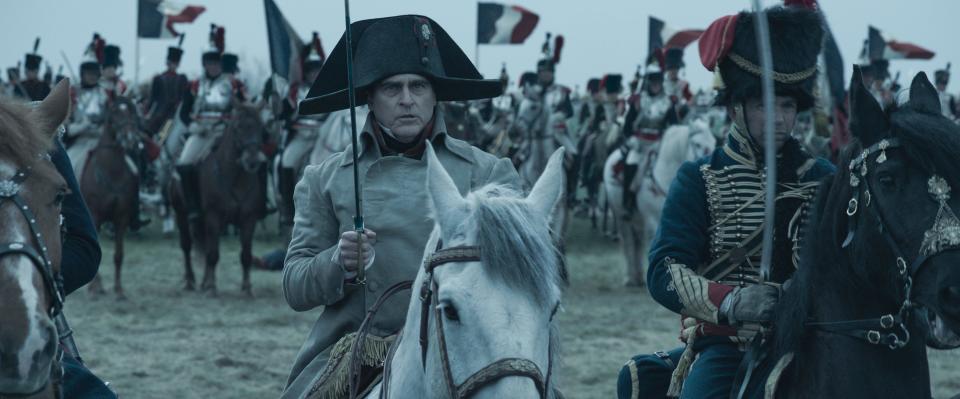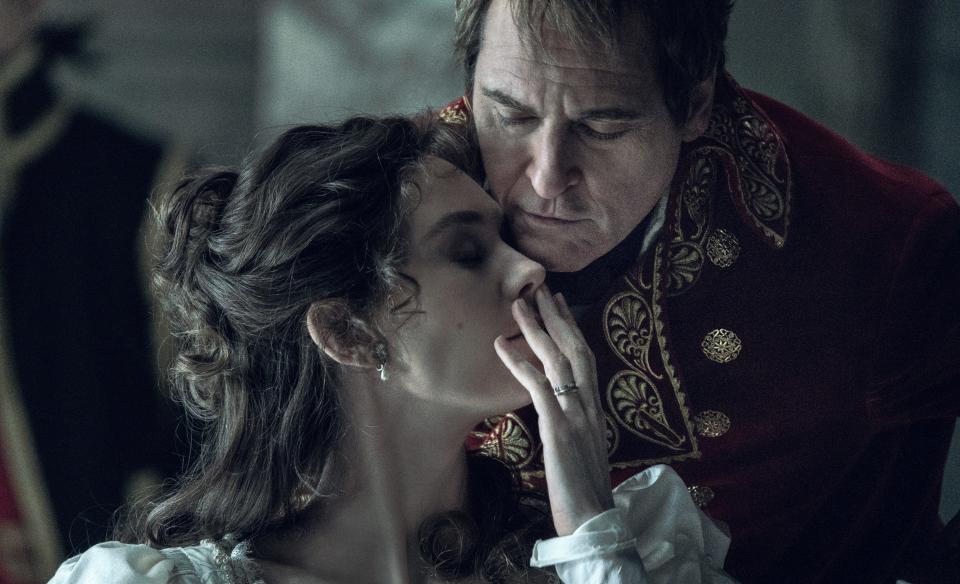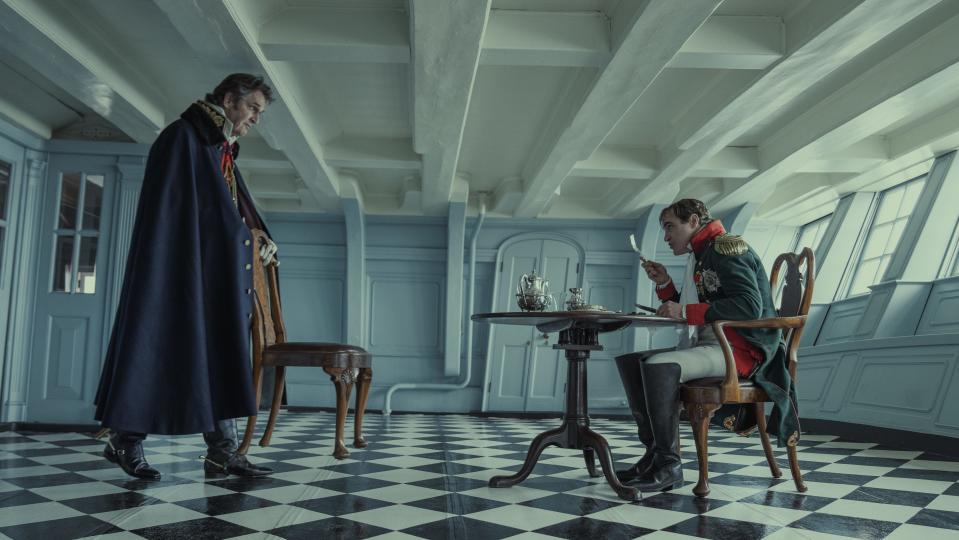'Napoleon' movie review: Joaquin Phoenix leads the charge in Ridley Scott's erratic epic
The life and times of Napoleon Bonaparte do not seem like a laughing matter. Watching director Ridley Scott’s new historical epic about the infamous Frenchman, though, frequent snickering or the occasional chortle is not only allowed but actively encouraged.
Satirical comedy, battlefield brutality and personal tragedy mix yet never completely gel in “Napoleon” (★★? out of four; rated R; in theaters now), a biopic starring Joaquin Phoenix as the mercurial title character. From watching Marie Antoinette’s head fall off to finding himself exiled after a bitter defeat, the film chronicles Bonaparte's political and military victories at the same time as his volatile and somewhat toxic relationship with his wife Josephine (Vanessa Kirby).
Plenty sprawling and often funny (purposely or not), “Napoleon” labors through the big moments though pops occasionally thanks to its standout leads and a feisty supporting turn from Rupert Everett as British naval commander the Duke of Wellington.
15 must-see holiday movies: From 'Napoleon' to 'Wish'

In 1789, Napoleon is introduced as a gunnery officer in the midst of a revolution. An ambitious sort, he wants to be seen as more than a Corsican “brute” and his status rises exponentially when he hatches a bold gambit at the 1793 Siege of Toulon, which deals a heavy blow to the hated British. At a party, he stares at and then meets Josephine, a former aristocrat and widowed mother recently freed from prison after the Reign of Terror.
These two survivors form a relationship that grows as Napoleon’s star rises to military commander and ultimately emperor. But the king is also a jealous man-child when it comes to his bride: Napoleon writes Josephine love letters that at first go unanswered – turns out, she’s taken a lover. When Napoleon’s army is on the march in Egypt, he hears that Josephine is cheating on him and decides to go back home, deserting his troops. His petulant response to the poor sap having to deliver the bad news: “No dessert for you.”
'She definitely turned him on': How Napoleon's love letters to Josephine inform a new film

At 85, Scott can still craft a brutally hellacious battle with the best of them. In the Battle of Austerlitz, Napoleon traps his Austrian and Russian foes and sends them to their deaths in a cold-blooded scene of cannonballs, corpses and massive bloodshed careening into icy waters. There's gamesmanship, too, like with the later Battle of Waterloo, which (208-year-old spoiler alert) doesn’t go nearly as well for Napoleon and allows Wellington to giddily outmaneuver his audacious enemy.
However, the war scenes aren’t as intriguing – or as bitterly nasty – as the intimately testy fights between Napoleon and Josephine. At dinner, she calls him “fat” and he coolly parries with “I enjoy my meals. Destiny has brought me this lamb chop.” When confronting Josephine about her adulterous actions, Napoleon orders her to say, “I am nothing without you,” before Josephine turns it around and makes him do the same.
'This character came from my guts': Joaquin Phoenix talks 'Beau is Afraid'

While not a transformative or innovative role for Phoenix, he’s able to nimbly move from a puffed-up public figure to a vulnerable husband and back and nails the clumsier elements of Napoleon. There is hardly much grace in anything he does, unconfidently charging into a violent tussle, scampering wildly to escape capture, or even trying to make a baby with Josephine. Kirby is excellent early on as Josephine matches wits with her husband, but her real skill is seen as the co-dependent couple's love story turns sad, with Josephine unable to give the country an heir to the throne and being left behind in the aftermath.
“Napoleon” is certainly better than other depictions of the famed personality. (If you’ll recall, the one in “Bill and Ted’s Excellent Adventure” preferred ice cream rather than lamb chops.) It’s a movie that could have put a sharper focus on the core characters’ fascinatingly tumultuous home life, or a historical character study that went all in on a darkly comic edge a la “The Favorite.”
Instead, Scott's saga takes after its namesake and opts for something inconsistent and idiosyncratic.
This article originally appeared on USA TODAY: 'Napoleon' review: Joaquin Phoenix elevates Ridley Scott's movie epic
